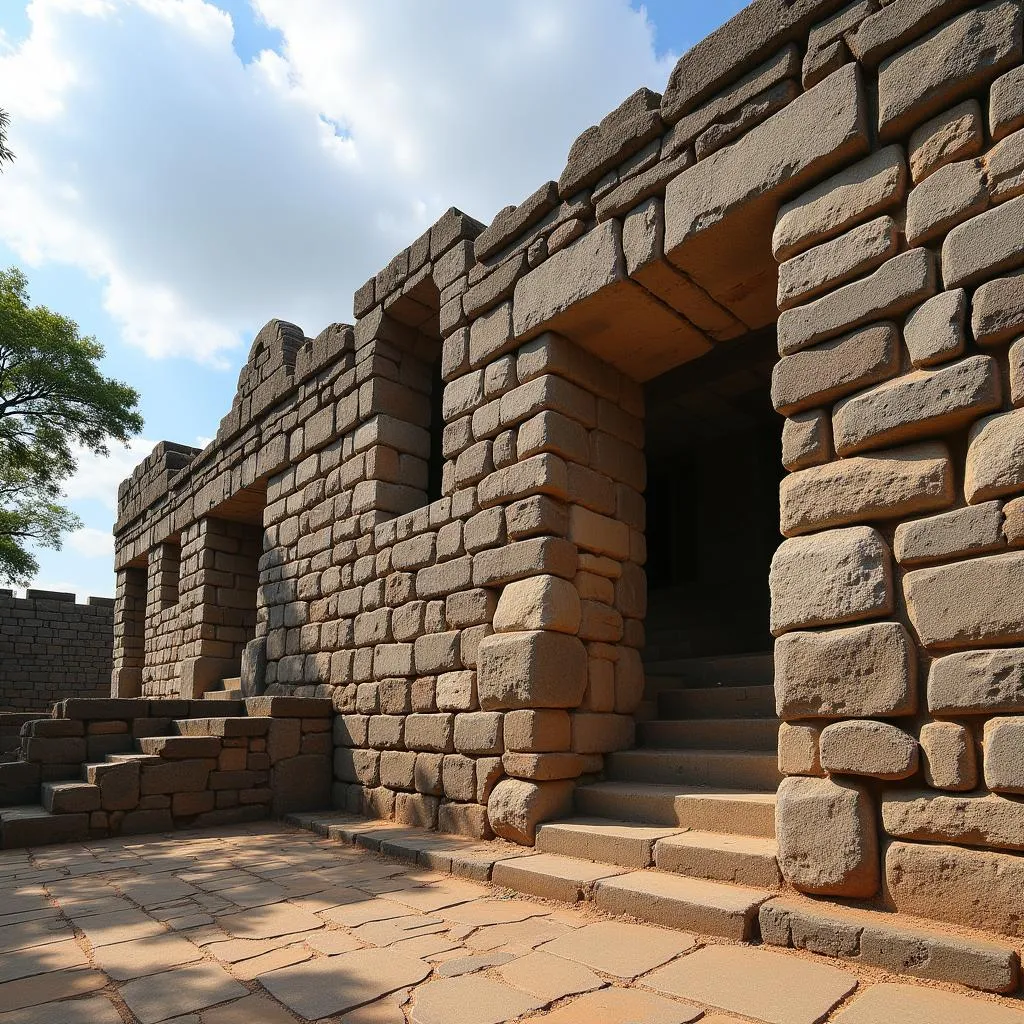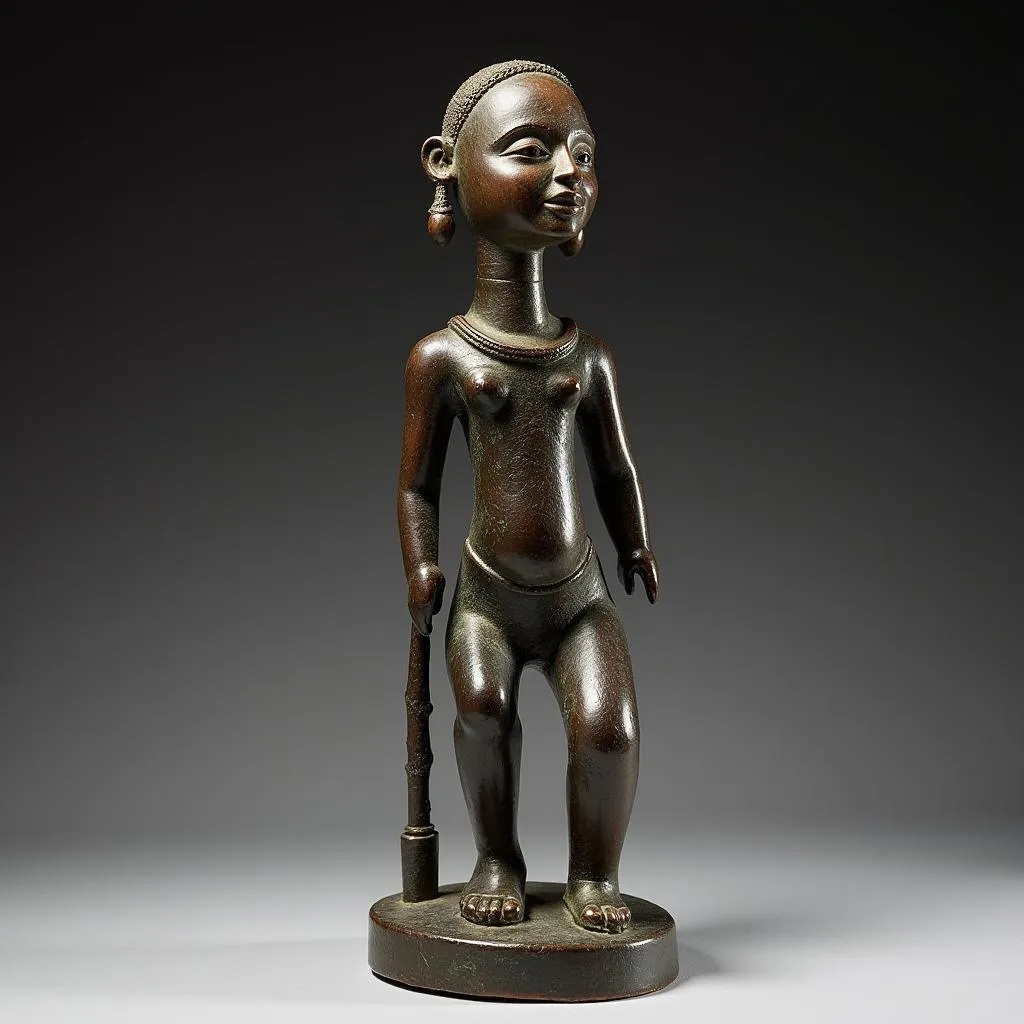Remarkable African Achievements Before European Arrival
The African continent boasts a rich and complex history, full of innovation and cultural achievements long before the arrival of Europeans. To assume Africa was a dormant giant waiting to be awakened by outside forces is a misconception. This article delves into the remarkable African Achievements Before European Arrival, revealing a continent teeming with ingenuity, knowledge, and advancement.
Flourishing Kingdoms and Empires
Africa was home to a multitude of well-organized kingdoms and empires that flourished for centuries. These societies developed sophisticated systems of governance, trade, and infrastructure, demonstrating a deep understanding of social and political organization.
The Great Zimbabwe
 The impressive stone ruins of Great Zimbabwe
The impressive stone ruins of Great Zimbabwe
The monumental stone city of Great Zimbabwe, built by the Shona people between the 11th and 15th centuries, stands as a testament to the architectural and engineering prowess of pre-colonial Africa. Constructed without mortar, the towering walls and intricate designs of Great Zimbabwe reflect remarkable skill and artistry.
The Kingdom of Aksum
Located in present-day Ethiopia and Eritrea, the Kingdom of Aksum thrived from the 1st to the 8th century CE. Aksum was a major player in the Red Sea trade, connecting Africa with the Roman Empire and the Indian subcontinent. The Aksumites developed a unique written script and were pioneers in adopting Christianity as a state religion in the 4th century.
The Mali Empire
The Mali Empire, one of the largest empires in West Africa, dominated the region from the 13th to the 16th centuries. Renowned for its wealth, the empire’s prosperity was built on trade, particularly in gold, salt, and enslaved people. Mansa Musa, the legendary ruler of Mali, is best known for his pilgrimage to Mecca in 1324, during which his lavish displays of wealth astounded the world.
Innovation and Technology
Contrary to the narrative that portrays Africa as technologically backward, the continent was a hub of innovation, with advancements in various fields. From iron smelting to mathematics, Africans were responsible for developing technologies that shaped the course of history.
Ironworking Technology
 Traditional African iron smelting process
Traditional African iron smelting process
The mastery of ironworking technology in Africa dates back to at least the 2nd millennium BCE. Archaeological evidence suggests that iron smelting techniques were independently developed in various parts of the continent. This technological advancement had a profound impact on agriculture, warfare, and various crafts, fueling the growth of powerful kingdoms and empires.
Mathematics and Astronomy
Africans made significant contributions to the fields of mathematics and astronomy. The use of complex mathematical systems was evident in their architectural designs, calendars, and trade practices. The ancient Egyptians, for example, developed a sophisticated understanding of geometry, evident in the precise construction of the pyramids.
Rich Artistic and Cultural Heritage
African societies have a long and rich tradition of artistic expression, evident in their diverse art forms, music, and oral traditions. These cultural expressions served as a means of storytelling, preserving history, and transmitting knowledge across generations.
 Intricately detailed Benin bronze sculpture
Intricately detailed Benin bronze sculpture
Bronze Casting in the Benin Empire
The Benin Empire, located in present-day Nigeria, was renowned for its exquisite bronze sculptures. These highly detailed castings, depicting the royal court and various aspects of Benin culture, demonstrate exceptional artistry and technical skill in metalworking.
Music and Dance Traditions
Music and dance played an integral role in African societies, serving as a means of communication, celebration, and spiritual expression. From the rhythmic drumming of West Africa to the polyphonic singing of South Africa, the continent’s musical traditions are as diverse as its people.
Conclusion
The achievements of pre-colonial Africa stand as a testament to the continent’s rich history and the ingenuity of its people. To overlook these contributions is to perpetuate a distorted and incomplete narrative of history. Understanding the true scope of African achievements before European arrival is crucial to acknowledging the continent’s rightful place in world history and appreciating the depth and richness of its cultural heritage.


